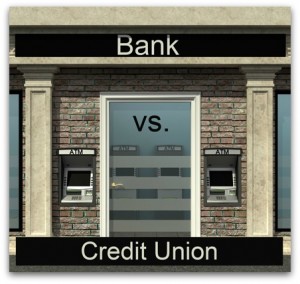Uncle John knows pretty much everything—and for when he doesn’t know, he heads into the dark recesses of his massive research library, or puts one of his many associates on the case. So go ahead: in the comments below, ask Uncle John anything. (And if we answer your question sometime, we’ll send you a free book!)
What’s the difference between a bank and a credit union?

The real difference: what each kind of financial institution does with its profits.
A bank is a business. You put money into a bank account, and the bank turns your money into more money, by loaning it out to other people and charging interest, or investing it in other businesses. (They also make more than a little here and there with ATM withdrawal fees and charging for checks.) Banks give you a share of the profits – a tiny share – in the form of interest, on interest-bearing accounts.
Banks go back hundreds of years to Europe, but credit unions are a relatively new variation, with the first established about 100 years ago per an act of Congress. Credit unions are generally restricted to a certain group of people: a profession, employees of a certain company, or maybe just residents of a certain area.
When you deposit money into a credit union, you aren’t loaning the institution money, which is essentially what a deposit at a bank is. At a credit union, you’re technically buying shares of the credit union itself. (This is why, while banks call you a customer, credit unions are more likely to refer to you as a “member” or even an “owner.”) The major, far-reaching business decisions of a bank are decided by a handful of executives. At credit unions, they’re voted on by the credit union’s members, or by a board of directors voted into their positions by members. And at the end of the year, a bank distributes its profits to its shareholders, who may or may not actually use that particular bank. So does a credit union, but in that case, it’s the people who use the credit union.







